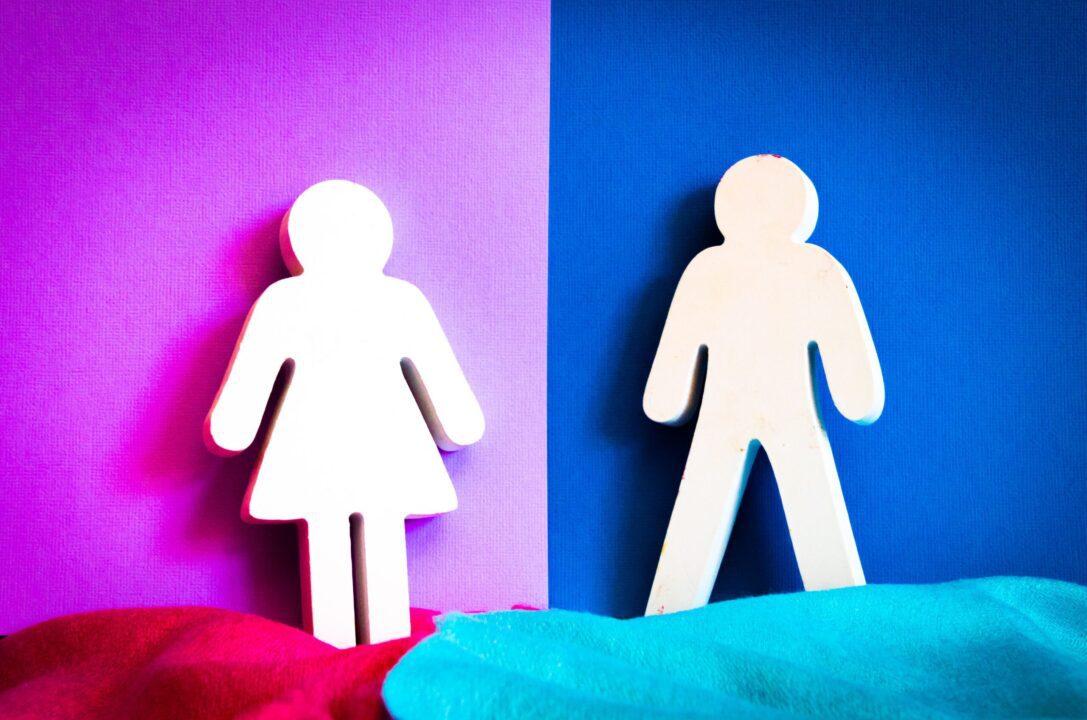Why are good communication skills important for your personal development?

![]() n today’s interconnected world, effective communication skills are an invaluable asset to success. In personal relationships, they form the bedrock of trust, intimacy, and conflict resolution, enabling individuals to express themselves and foster deep connections. Professionally, strong communication skills are essential for leadership, collaboration, and career advancement, distinguishing exceptional professionals and driving organizational success. Moreover, communication skills play a vital role in societal engagement, allowing individuals to voice their perspectives, engage in meaningful conversations, and contribute to positive change.
n today’s interconnected world, effective communication skills are an invaluable asset to success. In personal relationships, they form the bedrock of trust, intimacy, and conflict resolution, enabling individuals to express themselves and foster deep connections. Professionally, strong communication skills are essential for leadership, collaboration, and career advancement, distinguishing exceptional professionals and driving organizational success. Moreover, communication skills play a vital role in societal engagement, allowing individuals to voice their perspectives, engage in meaningful conversations, and contribute to positive change.
In this fast-paced, technology-driven era where genuine communication is often overlooked, mastering the art of effective communication remains more relevant than ever. It goes beyond mere words, encompassing active listening, empathy, and adaptation to diverse communication channels. By harnessing communication power, individuals can unlock broader opportunities and achieve fulfillment in every aspect of life.
The Art of Expression: Mastering Communication Skills
Communication skills extend beyond mere words; they possess the power to transform lives. Clear and effective communication allows individuals to articulate ideas, express emotions, and convey intentions, inspiring, motivating, and persuading others. It enables individuals to confidently share their thoughts and visions, leaving a lasting impact on those they interact with.
“Effective communication connects minds, hearts, and possibilities.”
Furthermore, honing communication skills empowers individuals to navigate complex situations, resolve conflicts, and foster understanding in various personal and professional settings. Whether it’s presenting ideas in a boardroom, engaging in meaningful conversations, or delivering impactful speeches, mastering the power of articulation through effective communication skills is crucial to success.
Building Meaningful Connections: The Foundation of Strong Relationships
Healthy relationships are based on effective communication. Strong communication skills enable individuals to express themselves clearly and attentively listen to others. This creates a foundation of trust, understanding, and empathy, which are essential elements for building and nurturing relationships.
“Communication works for those who work at it.”
Effective communication allows individuals to convey their thoughts, feelings, and needs with clarity, fostering open and honest channels of communication. It enables active dialogue, attentive listening, and empathy towards different perspectives. By nurturing meaningful connections through effective communication skills, individuals can build stronger personal and professional relationships. This leads to deeper understanding, collaboration, and mutual support.
Empathy: The Gateway to Understanding and Connection
Empathy is the cornerstone of effective communication. It involves understanding and sharing others’ feelings, enabling individuals to connect emotionally. Cultivating empathy allows individuals to develop heightened awareness and sensitivity to others’ experiences and emotions.
“Empathy is about finding another person’s echoes in yourself.”
Effective communication skills, coupled with empathy, empower individuals to respond to others with compassion and understanding. They can adapt their communication style to suit different individuals and situations, fostering an environment of respect and genuine connection. By embracing empathy as part of their communication skills, individuals can navigate conflicts gracefully, foster collaboration, and build strong bonds that transcend superficial interactions.
Nonverbal Communication: Speaking without Words
Communication extends beyond verbal expression alone. Nonverbal cues, such as body language, facial expressions, gestures, and tone of voice, play a significant role in conveying messages and emotions. These nonverbal signals often speak louder than words and can greatly impact the effectiveness of communication.
“Actions speak louder than words, but not nearly as often.”
By understanding nonverbal communication, individuals can interpret and utilize these cues effectively. They can become skilled at reading others’ body language, deciphering subtle facial expressions, and adjusting their own visual signals to enhance the impact of their message. Mastery of nonverbal communication adds depth and nuance to interpersonal interactions. This allows individuals to build rapport, convey authenticity, and establish trust with others.
Active Listening: The Art of Hearing and Understanding
Effective communication is a two-way street, and active listening is crucial. Active listening involves fully engaging with the speaker, giving undivided attention, and seeking to understand their message. It requires individuals to set aside their own thoughts and judgments, focusing solely on the speaker’s words and nonverbal cues.
“The most basic of all human needs is the need to understand and be understood. The most effective way to understand people is to listen to them.”
By practicing active listening, individuals demonstrate respect, validate the speaker’s perspective, and foster meaningful dialogue. It allows for deeper comprehension, reduces misunderstandings, and paves the way for effective communication and collaboration.
Overcoming Communication Barriers: Enhancing Skills for Success
Communication skills not only involve transmitting messages but also overcoming various barriers that hinder effective communication. These barriers may include cultural differences, language barriers, emotional obstacles, or personal biases. By developing strong communication skills, individuals can bridge these gaps and foster understanding and connection.
“The single biggest problem with communication is the illusion that it has happened.”
Through effective communication skills, individuals can adapt their communication style, choose appropriate language, and consider cultural differences. This ensures their message is understood and received as intended. Overcoming communication barriers allows for clearer and more effective exchanges, leading to better outcomes in personal and professional relationships.
Conflict Resolution: The Role of Communication
Conflicts are inevitable in human interactions, but effective communication skills can resolve them. By establishing open and honest communication channels, individuals can directly address conflicts, express concerns, and genuinely listen to others’ perspectives. This fosters mutual understanding, empathy, and creates opportunities to find common ground and work towards a resolution.
“The key to successful leadership today is influence, not authority, and communication is the foundation of influence.” Effective communication helps individuals avoid misunderstandings, manage emotions, and build bridges of understanding. By practicing active listening, empathy, and clear articulation, conflicts can become opportunities for growth, collaboration, and stronger relationships.
Captivating Audiences: The Power of Presentation Skills
Whether in boardrooms, classrooms, or public speaking engagements, strong presentation skills are vital for captivating and engaging audiences. Effective communication empowers individuals to deliver presentations with clarity, confidence, and persuasive power. By structuring their message effectively, utilizing visual aids, and actively involving the audience, individuals can leave a lasting impression and inspire action.
An unknown quote wisely states, “It’s not what you say, but how you say it. And how you say it can make all the difference.” By honing their presentation skills through effective communication, individuals can express their ideas with conviction, connect deeply with their audience, and leave a memorable impact. Effective presentations influence opinions, inspire change, and open doors to new opportunities.
Negotiation and Persuasion: The Art of Influential Communication
Communication skills play a crucial role in negotiation and persuasion scenarios. The ability to clearly articulate one’s interests, understand others’ perspectives, and find common ground is essential to successful negotiations. Effective communication enables individuals to present their points persuasively, actively listen to the other party, and seek mutually beneficial solutions.
“Communication is the real work of leadership.”
Through effective negotiation and persuasion skills, individuals can build rapport, overcome resistance, and achieve desired outcomes. Communication in negotiation lies in its ability to influence, build trust, and create win-win situations.
Adapting to the Digital Age: Communication Skills for Virtual Environments
In today’s digital age, communication extends beyond face-to-face interactions. Virtual communication platforms have become the norm, requiring individuals to adapt their communication skills to this new medium. However, virtual communication presents challenges such as limited nonverbal cues and potential misinterpretation. Mindful communication strategies are crucial for overcoming these challenges.
Bill Gates emphasized, “Technology is just a tool. In terms of getting the kids working together and motivating them, the teacher is the most significant.” Despite advancements in technology, effective communication remains key. By utilizing appropriate virtual communication tools, actively listening, being mindful of tone and clarity, and effectively utilizing visual aids, individuals can maximize the impact of their virtual communication. Adapting communication skills for the digital age enables individuals to connect with others across geographical boundaries. This enables them to collaborate remotely, and thrive in the evolving modern world landscape.
FAQs (Frequently Asked Questions).
Q: How can I improve my communication skills?
A: Improving communication skills requires practice and self-awareness. Listen to others, seek feedback, engage in conversations, and learn from effective communicators. Additionally, consider taking communication courses or workshops to further enhance your skills.
Q: Can communication skills be learned or innate? A: While some individuals naturally possess communication skills, effective communication can be learned and developed. With dedication and practice, anyone can improve their communication skills and become a more effective communicator.
Q: How can communication skills impact my career?
A: Strong communication skills are highly valued in the professional world. They enhance your ability to collaborate, lead teams, negotiate, and present ideas effectively. Excellent communication skills often lead to better job prospects, promotions, and success on various career paths.
Q: What role does body language play in communication? A: Body language, including facial expressions, gestures, and posture, conveys powerful messages alongside verbal communication. Being aware of your own body language and interpreting others’ nonverbal cues significantly enhances communication effectiveness.
Q: Can effective communication skills improve personal relationships? A: Yes, effective communication skills are essential for building and maintaining strong personal relationships. By expressing oneself clearly, actively listening, and demonstrating empathy, individuals can foster understanding, trust, and deeper connections with their loved ones.
Q: How does empathy contribute to effective communication? A: Empathy allows individuals to understand and share others’ feelings, leading to a deeper connection and understanding. By incorporating empathy into communication, individuals can respond with compassion and tailor their messages to resonate with others’ emotions.
Conclusion
In conclusion, communication skills can unlock doors to success in various aspects of life. Mastering the power of articulation, building meaningful connections, embracing empathy, understanding nonverbal cues, practicing active listening, and adapting to digital communication platforms are all crucial elements of effective communication. By continuously improving these skills, individuals can navigate personal and professional challenges, resolve conflicts, influence others, and foster harmonious relationships. So, harness your communication skills and unlock your true potential in success.
In addition to the above-mentioned benefits, strong communication skills also empower individuals to become strong leaders and agents of change. By harnessing communication power, individuals can inspire and motivate others, share their vision and ideas, and rally support for significant causes. Effective communication allows individuals to convey their message with passion, authenticity, and clarity, igniting inspiration in those around them. Whether it’s advocating for social justice, leading a team towards a common goal, or making a positive impact in the community, communication skills serve as a catalyst for driving meaningful change. So, embrace the power of effective communication and unlock your true potential not only for personal success but also for making a difference in the world.




